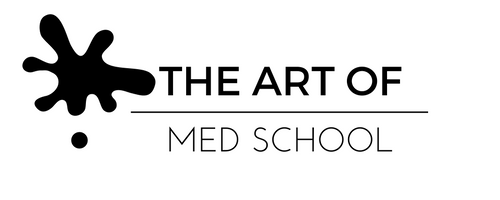It’s a little bit click bait, but we truly do believe this is the single most important piece of advice that you’ll get regarding preparing for Step 2 CS. As you know, this exam is designed to test your history taking skills, physical exam abilities, patient note writing and then a whole bunch of soft skills stuff, too. Those are things like English proficiency, making the patient feel heard, etc.
The big secret? Start preparing as soon as you start clinicals, if not before.
This is not a difficult test. It is focused primarily on things that you’ve been working on for quite some time. The only catch is you may not have been working on them in this way, so you may have some habits that need to be broken. They may not even be bad habits. You might be doing all the right things, but not in the right way to get the points. If you are able to start learning them the way the Step wants you to from the beginning, you are going to be way ahead when it comes to testing.
Starting early also allows you to make this process as automated and easy as possible. This applies even in the real world. If you have your HPI taking down to where you can just roll of those questions, you can spend more time thinking about their answers and less trying to decide what to ask next. Gotta do a physical exam? Having a templated version that is all muscle memory will help ensure that you don’t get stuck. Of course, these things will end up changing from patient to patient, but you’ll have a jumping off point to work with.
4 easy things that can be done from day 1:
Conduct patient interviews using your mnemonics. Again, allow this skill to get to a point where you aren’t even thinking anymore. At the same time, develop your note taking skills. Based off the notes you take in the interview, you should be able to write a full patient note.
Practicing your English. While doing an internal medicine rotation, I overheard another student get asked by a doctor to go see a patient. The student literally told the doctor “no.” It absolutely blew my mind. Turns out that he was too self conscience about his accent and grasp of English. I cannot imagine how tough it must be to go to med school in another language. I have serious respect for students who do that. Unfortunately, there is no getting around the English proficiency portion of Step 2 CS. The only way to improve your English is by getting as much patient interaction as possible. Remember, they came here to see you for a reason, but they can only have as much confidence in you as your have in yourself.
Practice your typing. I didn’t realize that being an older student would have this advantage. Apparently, some of the younger students have slower keyboard typing speeds because of the advent of mobile technology. If they could chart on their phones or a tablet, they might win. However, the test is done on a computer with a traditional keyboard. You are limited in the amount of time you can spend on your patient notes. It’d be better if more of it is spent writing and less trying to hunt and peck type.
Template your physical exams and repeat as often as possible. COPD patient? Do your templated pulmonary exam. Asthma? Do your templated pulmonary exam. URI? Do your templated pulmonary exam. Same goes for CVS, neuro, abdomen and all of the other categories you’ll have. Have the same base exam for everyone, then add whatever tests you deem necessary for their presentation.
These are very easy things that can be started on the very first day of your clinical rotations. During test prep for Step 2 CS, we had to reconfigure many of the skills and practices that we already had. That’s stupid. Start these habits, start them early, and you’ll have the vast majority of the test beat before you even schedule it.

